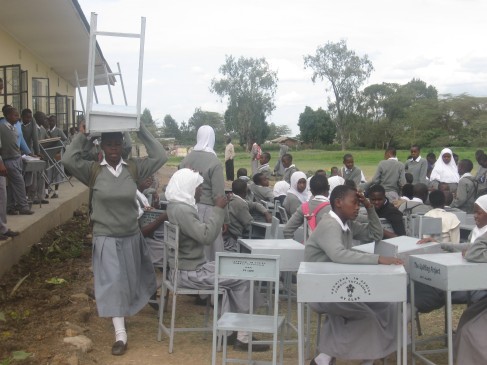Hi all,
I recently posted on the MSL Conversations Blog about my trip to Tanzania, and I’m posting it below to share with you all. Part 2 is coming soon!
– Alyssa
Three and a half years ago, I was another college student at Boston University trying to map out a career path, but unsure where I wanted to go. I love to write and my first dream job was to be an author, rather than, say, an astronaut. This led me from journalism to public relations. Why write the news when I can make the news? But more than that, I wanted to use my skill s to help others.
s to help others.
This inspired me to join my fiancee, Brendan Callahan, to co-found Achieve in Africa (AIA), a 501(c)3 nonprofit organization that is devoted to improving education in rural villages of Africa.
This past July, I got the opportunity to see what I’ve been working on for the first time when another organization expressed interest in sending a group of students to our project sites in Tanzania. Around this time, MSLGROUP Americas (Note: I work in the MSL Washington DC office) announced its Beyond Boundaries Experiential Awards designed to recognize and reward employees with learning and professional development opportunities that enhance their MSLGROUP Americas experience and deliver on agency values. One of the awards was a paid sabbatical to work on a cause program. I quickly jumped on the opportunity to win the sabbatical to pursue my volunteer work. When I received an email saying I won, I burst into tears of gratitude.
Along with Brendan and a group of volunteers, I was able to see our three projects: a classroom building in Olasiti Primary School outside of Arusha in northern Tanzania, a Community Learning Center in Ulolela village outside of Mbinga in southern Tanzania, and the site of Olasiti’s first secondary school (grades 7 and above), currently under construction.
While in Olasiti village, our group renovated seven classrooms by reinforcing the base of the walls with cement to avoid flooding, digging trenches to route rainwater away, and painting the outside of the classrooms. We also repaired a damaged classroom that was unusable by replacing the concrete floor, fixing cracked walls, and repainting the classroom inside and out. It sounds easy, but did I mention we mixed the cement by hand? And we painted with rollers stuck on the end of tree branches? It was a true lesson in what it means to be resourceful.
Olasiti village is unshakable — a community into which we were welcomed wholeheartedly. Olasiti Primary School’s headmistress taught me how to count in Swahili, how to carry a bucket of water on my head, and she gave me traditional handmade African cloth head wraps. I taught my “three African daughters” (who I wish I could’ve brought home with me) animal noises and ring-around-the-rosie, even though they were all under the age of five and didn’t understand any English. But aren’t they cute?













You must be logged in to post a comment.